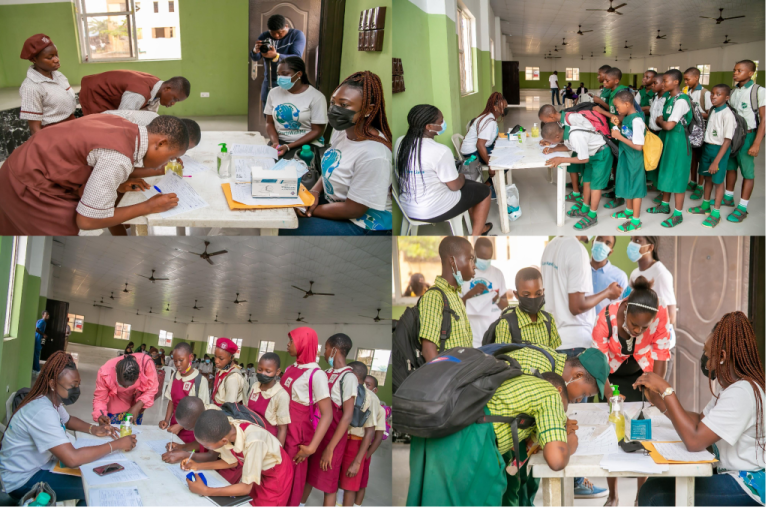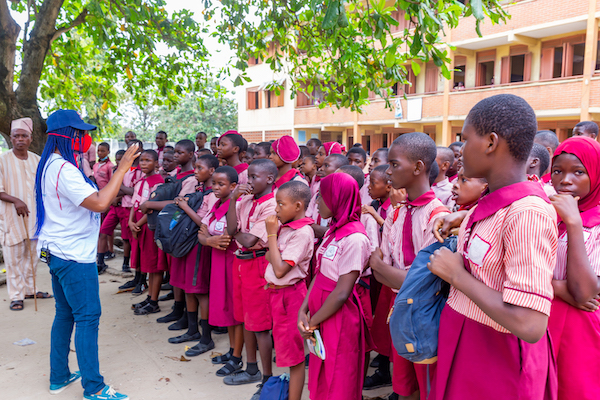Lagos to Osun: Our School Health Program Grows

aving kick started the second phase of our Antimicrobial Resistance (AMR) School Health Project where we scaled our activities to 30 schools in Osun and Lagos states, the Lagos team traveled to spend a week with our colleagues and students who are members of our Health and Hygiene Clubs (called DRASA Ambassadors) in Osun state. Members of the Supervisory Team with one Youth Trainer at Ooni’s Girls High School, Ile-Ife (L-R: Ademola Olayinka, Glorious Erhuanga, Praise Adeyemo, Temitayo Lawal, Oluwatosin Adedeji) Supervisory Team with Administrative Officials of Osogbo Grammar School The visit, which was held from 15th to 18th March, was to observe activities of our Youth Trainers in their schools and to acquaint ourselves with school management and district authorities. The schools visited include: Oduduwa College, Ooni’s Girls High School, and St. David’s Grammar School in Ile-Ife as well as Osogbo Grammar School in Osogbo. Group photograph of DRASA Ambassadors at St. David’s Grammar School, Ile-Ife with Supervisory Team and Focal Persons Former DRASA Ambassador Glorious (2018-2019) engaged in a conversation with new DRASA Ambassadors at Ataoja School of Science, Osogbo during their bi-weekly Health & Hygiene Club meeting Supervisory Team and VP, Oduduwa College with new Ambassadors of the Health & Hygiene Club in the School A former DRASA Ambassador from our 2018-2019 program, Glorious Erhuanga, joined us on the trip. Glorious was in her second year of secondary school when she joined our Health and Hygiene Club and she is now an undergraduate student at the University of Lagos studying English. Glorious speaking to the DRASA Ambassadors at St. David’s Grammar School, Ile-Ife She spoke to our new Ambassadors to share her experience with DRASA and what she has done with what she learned from our Health and Hygiene Club in her school. She also highlighted the impact and benefits of […]




